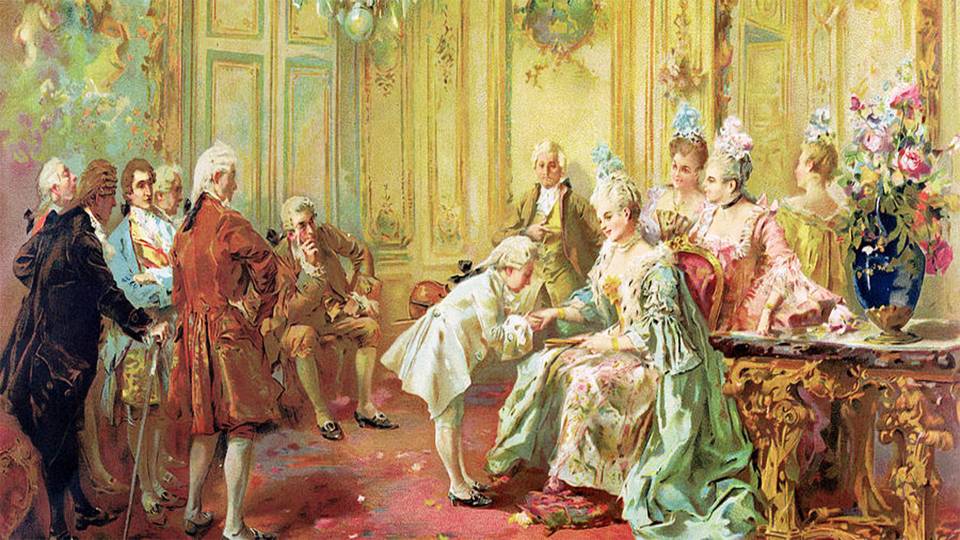Magazine Says Classical Music Is Infested with Problematic White Supremacy (Of Course, What Else?)
Over the week, there have been waves of backlash at The Metropolitan Opera’s newest season announcement. A recent Washington Post made the rounds, taking to task the institution’s insistence on an entirely white and male composer list, as well as a completely male roster of conductors taking the podium.
Chicago is especially no exception, as evidenced by the Lyric Opera’s lack of awareness in their recent copy for their 2018/2019 season right on their website:
We pride ourselves on bringing you diverse programming, and the 2018/19 Season is no exception. Verdi and Puccini in all their passion, elegant Handel and Mozart, romantic Massenet, mighty Strauss and Wagner—there’s no end to the riches that will make this season one to remember.
As a white man, there have been and continue to be countless times in which I have needed to recognize that privilege, white supremacy, homophobia, toxic masculinity, and gender normativity are layered issues. It’s easy to call a Nazi a racist because they are so obviously a racist. Not all racists are willing to take up that mantle.
Recognizing that Classical Music has implied White Supremacy for centuries is hard for those that study the art form. In fact, that correlating The Met’s continued programming of dead white men to the rise of White Supremacist tendencies in America is not a far stretch is starting to become apparent to those that follow and review the company’s season announcements.
Of course Italian Opera traditions are rich and are the backbone for many composers, but when an American institution, founded on the grounds of Natives and whose nation’s economy was fueled by the labor of slavery continues in 2018 to program exclusively white men, there’s a message being sent to those who don’t fall into that category.
“You need to prove yourself extraordinary, so work harder and watch your step.”
I didn’t want to write this editorial. As a person with privilege, it feels like an echo chamber of bad takes and dysphoric triggers. But as an editor, I reached out to countless folks, who will here remain nameless, that have said ‘thanks for the consideration, but I don’t think my career can carry this burden.’
I’ve made a habit of picking fights on facebook threads in classical music groups. If you’re friends with me, this isn’t news to you. And I’ve gotten backlash for that. But for every person I’ve called out, or had call me “rude” or otherwise attack my character, I’ve had folks reach out to me to thank me for saying something.
I’m not writing this now to pat myself on the back, I’m just trying to figure out a way to have on the record the opinions and societal pains of those who are too young or committed to their career to make sure they’re not being dealt with through oppression.
For the case of the Met, a young female composer can’t make their case without fear of name recognition. Classical Music’s seemingly almost precognitive ability to classify composers and performers solely by their gender is well documented, like when in the 1970s and 1980s, most symphony orchestras in the United States began adopting “blind” auditions whereby the identity of potential candidates was concealed from the jury by a screen.
The findings were clear. “Blind” auditions increased the likelihood of female musicians being selected by 30%. According to analysis using roster data, the transition to blind auditions from 1970 to the 1990s can explain 30 percent of the increase in the proportion female among new hires and possibly 25 percent of the increase in the percentage female in the orchestras.
In the work Blackness in Opera, edited by Naomi André, a series of black scholars take to task a series of historical placements that have helped to create the space in which we find the art form today. In André’s own chapter, “From Otello to Porgy, Blackness, Masculinity, and Morality in Opera,” she points out where even Classical Music’s best intentions can go horribly wrong.
Gershwin’s Rhapsody in Blue, a work heavily influenced by the jazz movement, was the first representation that the art form had with orchestral audiences, but at the time it was clear that its warm welcome was thanks to Gershwin’s whiteness. Gershwin then followed this work up with Porgy and Bess’ predecessor, Blue Monday. This work was panned heavily by the black community of the time, and André documents this extensively.
Read the rest here.






















